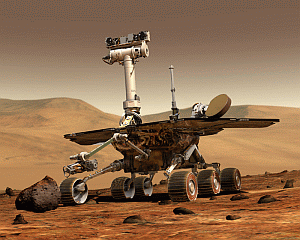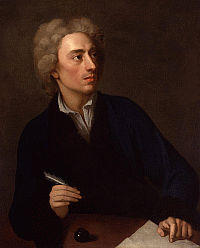“Know then thyself, presume not God to scan
The proper study of mankind is man.”
Those words by Alexander Pope were published in 1734. They are part of a poem whose psychological and philosophical content anticipates contemporary ideas of human nature so comprehensively that in some ways it seems extraordinary that we haven’t made greater progress.
However, despite the joy it’s possible to take in his genius, I’m not here to eulogize Mr Pope. Instead, I want to expand the notion that: “The proper study of mankind is man”, into: “Every (wo)man’s purpose on earth is to gather information about being human.”
And nothing more.

No less human than you or me?
In this model of life we are flesh-and-blood discovery vehicles. Similar to the Mars Spirit explorer vehicle but infinitely more-sophisticated. Like the mechanical explorer we are dropped into strange territory and proceed to move around gathering information.
And, still like the explorer, we pass our information on. Through example, word, action and technology we communicate with other humans and contribute to the collective knowledge pool.
To what end?
Good question. But who knows? We could ask the ants, who do the same sorts of things that we do (but with pheronomes instead of the Internet) and at 130 million years have been around a lot longer. But I don’t think they can know, either.
It sounds a bit bland, but the answer’s probably: “Survival of the species”, or: “Because that’s what we do”.
In some ways it seems sad that we can never know what the universe intended us for or even if there was an intention. On the other hand, it is tremendously liberating. It means we can feel free to do whatever we want.
So even if we are just fulfilling our universal purpose of – say – destroying the ecology of this planet, we can at least have some sense of autonomy as we go about it.
OK, Chris, but – er – so what?
What’s the practical application of this kind of musing? It enables a shift in an internal state from helpless fretting inadequacy to a knowledge and acceptance of our total value.

"If I focus my aim intently, I'll score a bulls-eye with my pen." A. Pope
It means we can do whatever we are doing whole-heartedly. We don’t have to be constantly second-guessing ourselves in a futile endeavor to “do the right thing”.
After all, if we don’t know what we’re here for we can have no idea what is ultimately useful to do or know. Everything we learn is passed on to the rest of humanity and all knowledge is of equal value as far as the species is concerned. Just ask Wikipedia.
This is of particular significance to ourselves because, of course, the community of gifted and creative individuals is in the vanguard of data collection. It also leads in the development of ways of expressing and communicating that data.
Let A. Pope have the last word
Finally, if the idea that we’re just a vast army of data sensors is true, then Pope was correct when he wrote in the same poem:
“Whate’er the passion — knowledge, fame or pelf —
Not one will change his neighbour with himself. ”
. . . because it wouldn’t be in the interests of the species to have everyone seeing the same thing and reacting to it in the same way.
I’ll try to remember that the next time I try to “encourage” my child, mother, teacher, or client to “behave properly.”